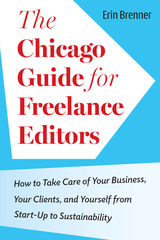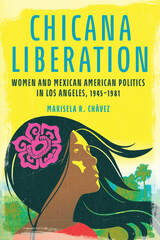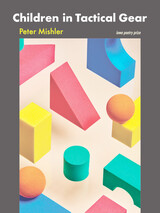14 start with T start with T
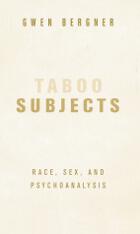
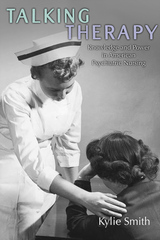
Winner of the 2020 Lavinia L. Dock Award from the American Association for the History of Nursing
Talking Therapy traces the rise of modern psychiatric nursing in the United States from the 1930s to the 1970s. Through an analysis of the relationship between nurses and other mental health professions, with an emphasis on nursing scholarship, this book demonstrates the inherently social construction of ‘mental health’, and highlights the role of nurses in challenging, and complying with, modern approaches to psychiatry. After WWII, heightened cultural and political emphasis on mental health for social stability enabled the development of psychiatric nursing as a distinct knowledge project through which nurses aimed to transform institutional approaches to patient care, and to contribute to health and social science beyond the bedside. Nurses now take for granted the ideas that underpin their relationships with patients, but this book demonstrates that these were ideas not easily won, and that nurses in the past fought hard to make mental health nursing what it is today.
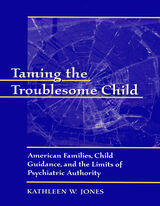
When our children act up--whether they're just moody and rebellious or taking drugs and committing crimes--our solution, so often now, is to send them to a psychiatrist or developmental psychologist for help. What makes us think this will work? How did we come to rely on psychological explanations--and corrections--for juvenile misconduct?
In Taming the Troublesome Child, these questions lead to the complex history of "child guidance," a specialized psychological service developed early in the twentieth century. Kathleen Jones puts this professional history into the context of the larger culture of age, class, and gender conflict. Using the records of Boston's Judge Baker Guidance Center from 1920 to 1945, she looks at the relationships among the social activists, doctors, psychologists, social workers, parents, and young people who met in the child guidance clinic, then follows the clinicians as they adapt delinquency work to the problems of nondelinquent children--an adaptation that often entailed a harsh critique of American mothers. Her book reveals the uses to which professionals and patients have put this interpretation of juvenile misbehavior, and the conditions that mother-blaming has imposed on social policy and private child rearing to this day.

This book distills the essence of child psychoanalysis from the practice and thought of its founder Anna Freud, who for over 50 years has been at the forefront of this controversial field. Children are the most refractory of all subjects to treat analytically. Here, for the first time, is a primer on the difficult technique as practiced at the Hampstead Clinic in London, which was founded by Anna Freud and is today the leading child analytic center in the world. She and her colleagues expose their wealth of experience to systematic review, which yields up rich insights not only into child psychoanalysis and psychotherapy but also into basic child development. In addition, their findings have relevance to the understanding of emotional disturbance at all ages.
The book follows the treatment situation through all its stages, from the first session to termination and follow-up. It focuses on the interaction between therapist and child in the treatment room, illustrating the points with copious clinical vignettes. One point examined is the structure of treatment with respect to such matters as scheduling sessions and handling interruptions. Another element that comes under scrutiny is the development of the child's relationship to the therapist, which subsumes such factors as establishing an alliance, transference, and resistance. The child's repertoire of expressions, both verbal and nonverbal, is explored, as is the therapist's armamentarium of interpretations and interventions. Woven throughout the description of these elements is incisive commentary by Anna Freud. Her commonsense approach gives the book unique value, lifting it to a rare level of human wisdom.

Iris Murdoch once suggested that to understand any philosopher's work we must ask what he or she is frightened of. To understand any psychoanalyst's work--both as a clinician and as a writer--we should ask what he or she loves, because psychoanalysis is about the unacceptable and about love, two things that we may prefer to keep apart, but that Freud found to be inextricable. If it is possible to talk about psychoanalysis as a scandal, without spuriously glamorizing it, then one way of doing it is simply to say that Freud discovered that love was compatible, though often furtively, with all that it was meant to exclude. There are, in other words--and most of literature is made up of these words--no experts on love. And love, whatever else it is, is terror.
In a manner characteristically engaging and challenging, charming and maddening, Adam Phillips teases out the complicity between desire and the forbidden, longing and dread. His book is a chronicle of that all-too-human terror, and of how expertise, in the form of psychoanalysis, addresses our fears--in essence, turns our terror into meaning.
It is terror, of course, that traditionally drives us into the arms of the experts. Phillips takes up those topics about which psychoanalysis claims expertise--childhood, sexuality, love, development, dreams, art, the unconscious, unhappiness--and explores what Freud's description of the unconscious does to the idea of expertise, in life and in psychoanalysis itself. If we are not, as Freud's ideas tell us, masters of our own houses, then what kind of claims can we make for ourselves? In what senses can we know what we are doing? These questions, so central to the human condition and to the state of psychoanalysis, resonate through this book as Phillips considers our notions of competence, of a professional self, of expertise in every realm of life from parenting to psychoanalysis. Terrors and Experts testifies to what makes psychoanalysis interesting, to that interest in psychoanalysis--which teaches us the meaning of our ignorance--that makes the terrors of life more bearable, even valuable.

Across the world anxiety, stress and depression are on the increase, a trend which looks set to continue as austerity measures bite. The official response tells people that unhappiness is just a personal problem, rather than a social one.
Written by a practising psychologist, with nearly thirty years' experience in the fields of mental health and learning disabilities, The Therapy Industry offers a concise, accessible and critical overview of the world of psychological practice in Britain and the USA. Paul Moloney argues that much therapy is geared towards compliance and acceptance of the status quo, rather than attempting to facilitate social change.
The Therapy Industry fundamentally challenges our conceptions of happiness and wellbeing. Moloney argues that therapeutic and applied psychology have little basis in science, that their benefits are highly exaggerated and they prosper because they serve the interests of power.

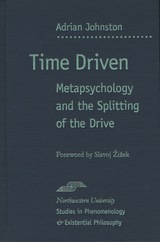
Johnston draws on Jacques Lacan's oeuvre in conjunction with certain philosophical resources-elements from transcendental philosophy, structuralism, and phenomenology-to rectify the inconsistencies within the Freudian metapsychological model of drive. In doing so, he helps to answer a question haunting Freud at the end of his career: Why is humanity plagued by a perpetual margin of discontent, despite technological and cultural progress?
In Time Driven, Johnston is able to make sense of Freud's metapsychology both as a whole and in its historical development of Lacan's reinterpretation of Freud, and of the place of both Freud and Lacan in modern philosophy.
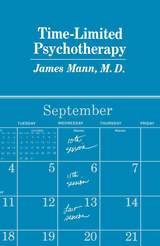
Waiting lists in psychiatric clinics and increasing numbers of patients in long-term psychotherapy have highlighted the need for shorter methods of treatment. Existing forms of short-term psychotherapy tend to be vague and uncertain, lacking as they do a clearly formulated rationale and methodology.
The bold and challenging technique for brief psychotherapy designed around the factor of time itself, which James Mann introduces here, is a method he hopes will revolutionize current practice. The significance of time in human life is examined in terms of the development of time sense as well as its unconscious meaning and the ways these are experienced in both the categorical and existential senses. The author shows how the interplay between the regressive pressures of the child’s sense of infinite time and the adult reality of categorical time determine the patient’s unconscious expectations of psychotherapy.


From Aeschylus' classic drama The Persians to the hidden tragic themes in The Merchant of Venice, from the aesthetic writings of Kant to Kleist's narrative Michael Kohlhaas, Kuhns traces the writing and rewriting of the themes of ancient tragedy through modern texts. A culture's concept of fate, Kuhns argues, evolves along with its concepts and forms of tragedy. Examining the deep philosophical concerns of tragedy, he shows how the genre has changed from loss and mourning to contradiction and repression. He sees the fact that tragedy went underground during the optimism of the Enlightenment as a repression that continues into the American consciousness. Turning to Melville's The Confidence Man as an example of Old World despair giving way to New World nihilism, Kuhns indicates how psychoanalytic understanding of tragedy provides a method of interpretation that illuminates the continuous tradition from the ancient to the modern world. The study concludes with reflections on the poetry of Walt Whitman and Emily Dickinson. Each poet's celebration of the body, and the contribution of the senses to reason, perception, and poetic intuition, is seen as an embodiment of the modern tragic sensibility.
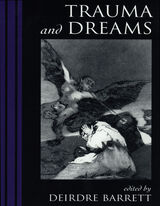
According to the poet Elias Canetti, “All the things one has forgotten / scream for help in dreams.” To the ancient Egyptians they were prophecies, and in world folklore they have often marked visitations from the dead. For Freud they were expressions of “wish fulfillment,” and for Jung, symbolic representations of mythical archetypes. Although there is still much disagreement about the significance and function of dreams, they seem to serve as a barometer of current mind and body states.
In this volume, Deirdre Barrett brings together the study of dreams and the psychology of trauma. She has called on a distinguished group of psychiatrists, psychologists, and social workers—among them Rosalind Cartwright, Robert J. Lifton, and Oliver Sacks—to consider how trauma shapes dreaming and what the dreaming mind might reveal about trauma. The book focuses on catastrophic events, such as combat, political torture, natural disasters, and rape. The lasting effects of childhood trauma, such as sexual abuse or severe burns, on personality formation, the nature of memories of early trauma, and the development of defenses related to amnesia and dissociation are all considered. The book also takes up trauma and adult dreams, including Vietnam veterans and Post-Traumatic Stress Disorder, Holocaust survivors and perpetrators, rape victims, and firestorm survivors. Finally, this volume concludes with a look at the potential “traumas of normal life,” such as divorce, bereavement, and life-threatening illness, and the role of dreams in working through normal grief and loss.
Taken together, these diverse perspectives illuminate the universal and the particular effects of traumatic experience. For physicians and clinicians, determining the etiology of nightmares offers valuable diagnostic and therapeutic insights for individual treatment. This book provides a way of juxtaposing the research in the separate fields of trauma and dreams, and learning from their discoveries.
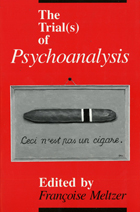

Blame society. Blame a bad upbringing. Blame the circumstances. Blame the victim--she may even blame herself. But what about the perpetrator? When the blame is all assigned, will anyone be left to take responsibility?
This powerful book takes up the disturbing topic of victimization and blame as a pathology of our time and its consequences for personal responsibility. By probing the psychological dynamics of victims and perpetrators of rape, sexual abuse, and domestic violence, Sharon Lamb seeks to answer some crucial questions: How do victims become victims and sometimes perpetrators? How can we break the psychological circle of perpetrators blaming others and victims blaming themselves? How do victims and perpetrators view their actions and reactions? And how does our social response to them facilitate patterns of excuse?
With clarity and compassion, Lamb examines the theories, excuses, and psychotherapies that strip both victims of their power and perpetrators of their agency--and thus deprive them of the means to human dignity, healing, and reparation. She shows how the current practice of painting victims as pure innocents may actually help perpetrators of abuse to shirk responsibility for their actions; they too can claim to be victims in their own right, passive and will-less in their wrongdoing.
The Trouble with Blame clarifies the social cost (quickly becoming so apparent) of letting perpetrators off too easily, and points out the dangers of over-emphasizing victimization, two problems which eclipse our dire need for accountability and recovery.
READERS
Browse our collection.
PUBLISHERS
See BiblioVault's publisher services.
STUDENT SERVICES
Files for college accessibility offices.
UChicago Accessibility Resources
home | accessibility | search | about | contact us
BiblioVault ® 2001 - 2024
The University of Chicago Press


